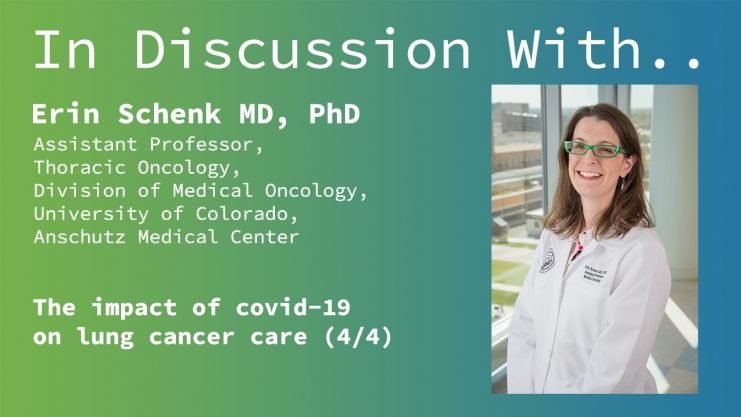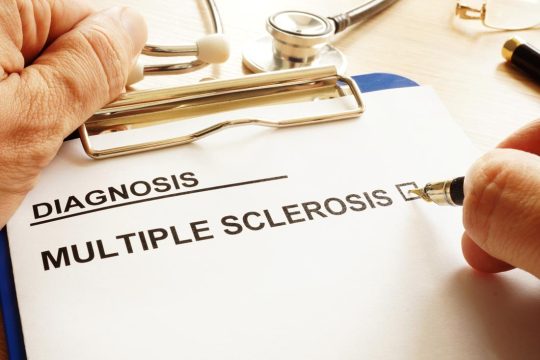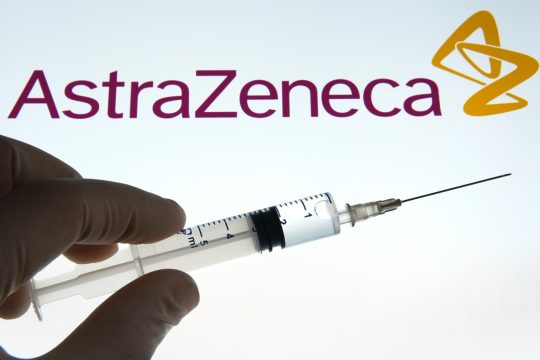Advertisment
The impact of covid-19 on lung cancer care

Interview and article by Christine Clark.
Delayed diagnoses and more patients with advanced cancers were consequences of the coronavirus pandemic, according to Dr Erin Schenk, Assistant Professor, Thoracic Oncology, University of Colorado.
The coronavirus pandemic prompted a number of changes in patient care in medical oncology. “One of the things that we have learned and I hope we will continue to take forward even when the pandemic is under control is that doing virtual visits is an effective way of helping to care for our cancer patients”, says Dr Schenk. This works particularly well for those that are doing well on long-term tyrosine kinase inhibitor (TKI) therapy ….. and for surveillance visits “where we are updating scans and making sure things are OK”, she comments.
For patients, virtual visits they eliminate the stresses of having to drive to the hospital, find parking space, and find their way through the academic institution. Virtual visits allow doctors to see patients in other areas of the country without patients having to travel long distances. “I think that’s one of the major points of change that we will carry forward even after the pandemic”, emphasises Dr Schenk.
Early in the pandemic there was much concern about having enough personal protective equipment (PPE) and also about how to do things safely in the face of many unknown risks. “I think our understanding really crystallised as we got more information about the virus as well as tried to continue practising and that is – cancer does not wait – when people are eligible for curative intent therapy we should do everything we can to provide curative intent therapy as per the normal standard outside of the pandemic”, says Dr Schenk. An article in a medical journal had examined the costs and outcomes as a result of delays in cancer therapy.
“They were able to look at a number of different cancers and what they saw was that even a four-week delay could reduce the chances of patients being cured. I think that has played out in our clinical practice. Patients, unfortunately, are coming to us with more advanced disease; we are seeing early stage cancer patients less [often]”, she says. In part this was probably because services were initially reduced to “the bare essentials” and also because patients were afraid to come into a large medical centre where there were sick people.
Other ways that the hospital worked around the pandemic involved organisational changes such as reducing the number of visitors permitted able to accompany patients to appointments or for infusion therapy.
Read and watch the full series on our website or on YouTube.





